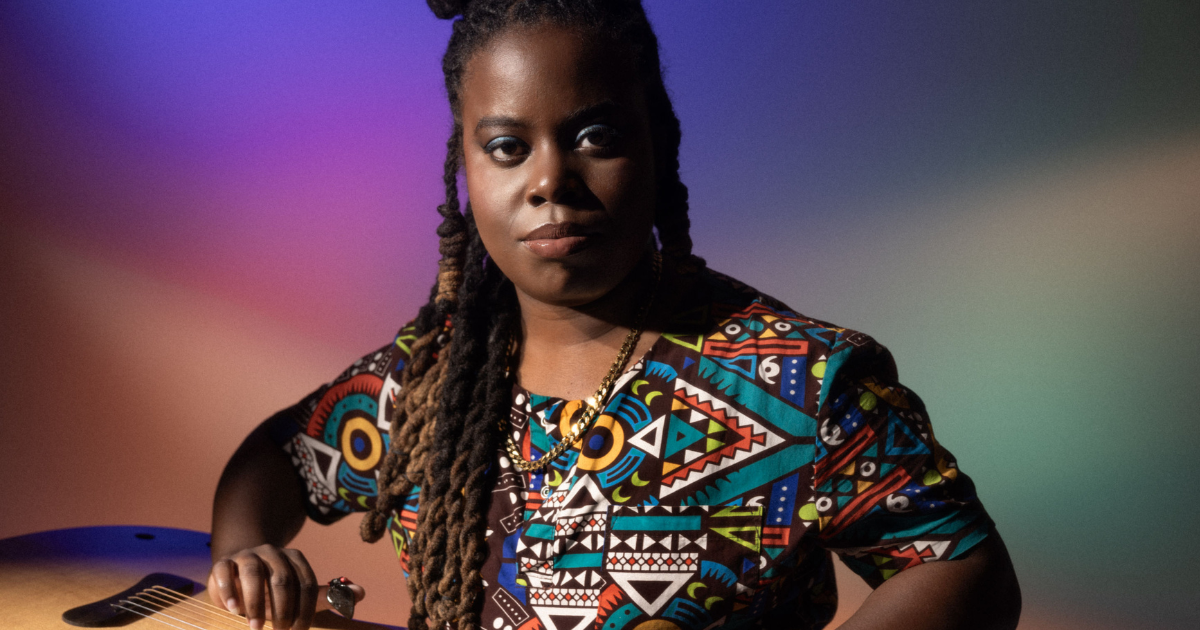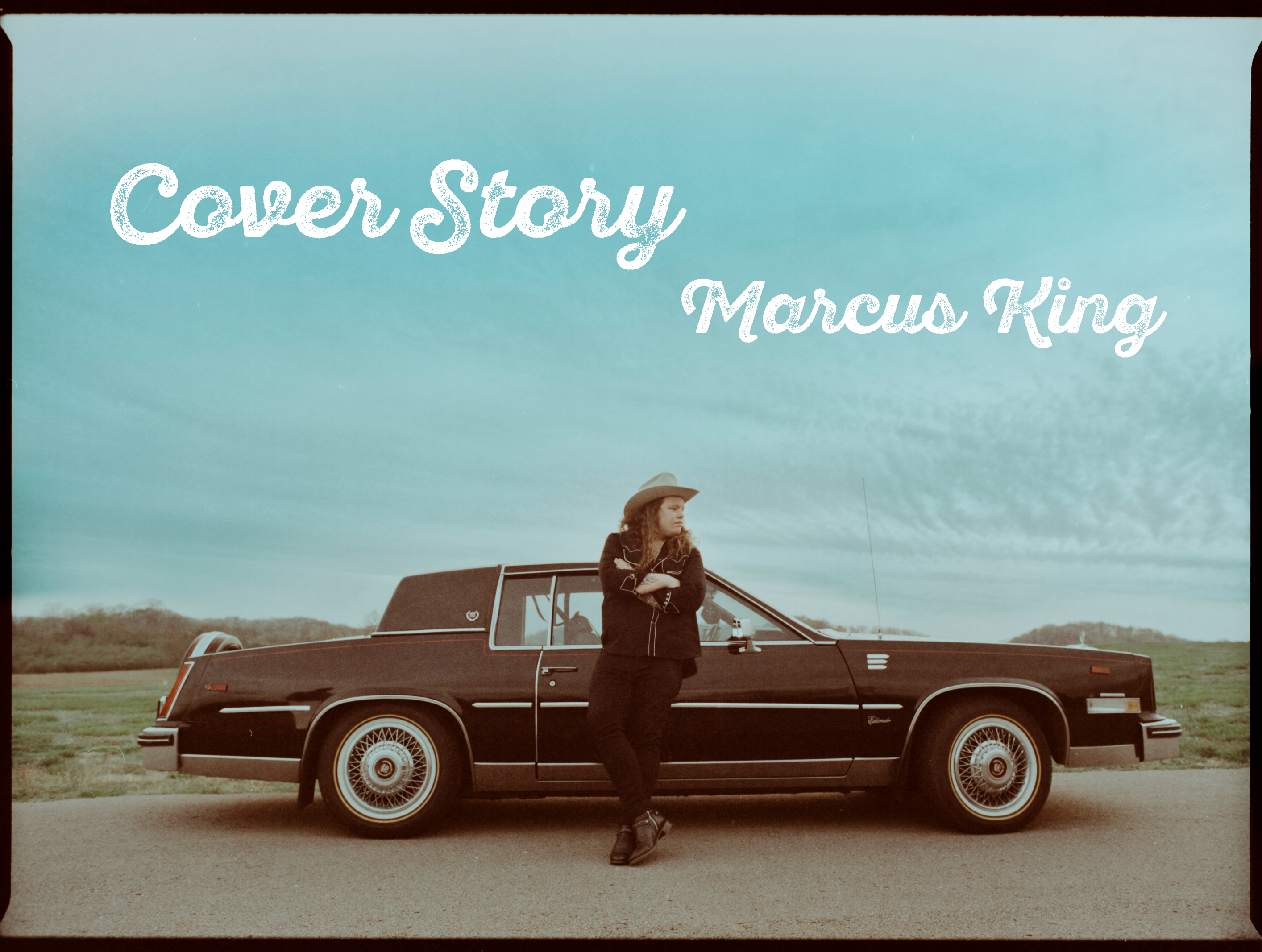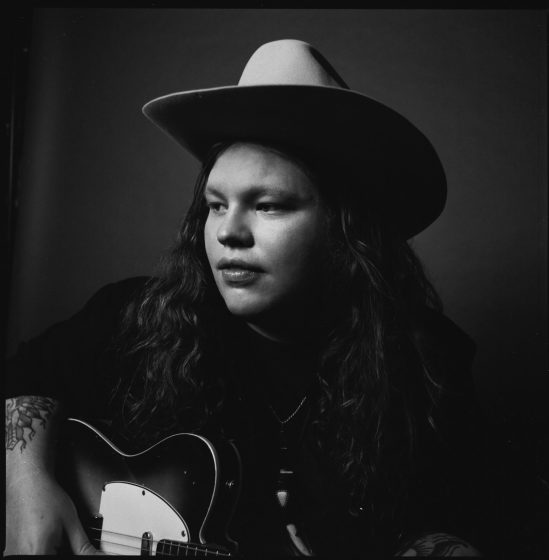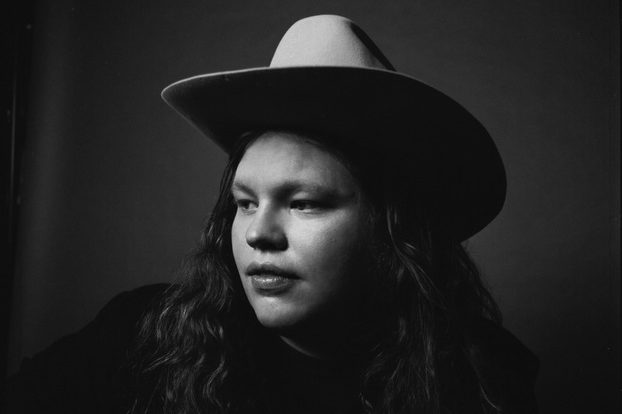(Editor’s Note: For a special Artist of the Month feature and op-ed, acclaimed guitarist, composer, and improviser Jackie Venson considers the impact, musicality, and originality of her peer Yasmin Williams. Read more about Venson on BGS here. Explore more AOTM content on Williams here.)
As someone who gets pigeonholed as a blues guitarist, I’ve publicly reckoned with what I feel is an othering of blues as no longer really art, but instead what might be seen as a wax museum-ification of a formerly revolutionary genre. Too many established musicians and fans alike don’t want blues to evolve, but to instead be preserved in amber. Yet, its sibling folk music has not only never entirely fallen out of fashion, it has evolved and even prospered specifically because its brightest figures have refused to let tradition and academic codification stagnate the genre. Whether you’re talking about Bob Dylan going electric or Bon Iver collaborating with hip-hop superstars, folk musicians understand that cross pollination and new ideas are vital to growth. To my ears, Yasmin Williams is a proud continuation of that tradition of evolving folk.
To listen to the music of Yasmin Williams is to listen to the thrill of musical mutation in action, to hear and feel playing that is in constant communication, not only with itself, but with myriad styles and personalities. Given how adventurous and playful Williams’ music is, it’s not too surprising that her gateway to music was in fact a video game, specifically Guitar Hero 2.
In a review of Williams’ breakout 2021 album Urban Driftwood for taste-making music site Pitchfork, writer Sam Sodomsky connected Williams’ percussive, tap-heavy fingerpicking style to the mechanics of that game, as well as folk guitar legend John Fahey. Rhythmic intensity and love for the thrill of performance are the unifying elements of Williams’ otherwise impossible-to-pin-down style; this isn’t folk as a study or stuffy examination of tradition, it’s folk as expression at its most pure, music for entertainment, communication, and friendly competition all at once.
Williams’ latest batch of singles from her just-released album, Acadia, impeccably illustrates this eclectic and freewheeling approach to folk. “Hummingbird” is a dazzling collaboration with banjo player Allison de Groot and fiddle phenom Tatiana Hargreaves that recalls Richard Thompson’s lush, melodic picking but marries it to the breakneck intensity of traditional bluegrass.
On the other end of the folk spectrum, “Virga” finds Williams teaming up with Darlingside for a gorgeous and stately slice of indie folk that would fit right in with the likes of Sufjan Stevens and Bibio. Somewhere in the middle is “Dawning,” a bluesy folk number that features Williams dueting on guitar with Aoife O’Donovan of Crooked Still fame, who also provides enchanting, wordless vocals that give the song an almost ambient quality, as if Sigur Rós moved to Appalachia.
Even on songs that are more traditional, Williams playfully inserts pop and experimental elements. Take “Sunshowers,” which opens Urban Driftwood with beautiful fingerpicking that in turn gives way to a simple yet addictive bass-like hook that wouldn’t be out of place on a Post Malone single. Or, consider the album’s title track, which features djembe playing by Amadou Kouaye and adds an almost IDM (Intelligent Dance Music) quality to the song. Or, “Nova to Ba,” a collaboration with Argentine musician Dobrotto that effortlessly transitions from cinematic grandeur to relaxing ambient textures.
As a musician, I can’t help but be entranced by the marvelous skill and tone on display in Williams’ music. But more importantly, as a listener, I’m struck by the immediacy and tunefulness of the songs. Like Williams’ early inspiration, Guitar Hero 2, these songs are hard to put down once you start, and the difficulty never gets in the way of the fun.
“Juvenescence,” one of Williams’ most popular songs, is a handy representation of her skills – the impeccable picking, the daredevil runs that would impress even Eddie van Halen, the self-dueting in the finale. But it’s also immensely listenable and never a chore. Equally impressive is “Swift Breeze,” where Williams utilizes her guitar as an organic drum machine, getting a booming kick drum sound out of the body and rim shot-like hits out of other components, all while arpeggiating like she just got off a tour as the lead guitarist for a Midwest emo outfit.
It might seem odd to bring up emo in a feature on a folk musician, but there is a considerable amount of drama and theatricality in Williams’ music, even though most of it is instrumental. “Adrift,” in particular, has just as many emotional pivots and anthemic hooks as a Panic! At The Disco song. Here, the guitar comes in first, then the strings, but the swaggering hooks and melancholic valleys are there. It’s not hard to reimagine “Restless Heart,” from Williams’ debut album, Unwind, as an emo anthem either; it has a killer riff to kick things off followed by a pick slide and some heavy ringing chords. Even the title sounds like something the Get Up Kids would have used. If Dashboard Confessional was ever looking for their own Tim Reynolds to do an acoustic tour with, all I’m saying is Williams’ name should be high up on the list.
Every genre should be so fortunate as to have an artist like Williams, a performer who challenges herself without losing sight of what makes music a pleasure to listen to. A musician who commits to pushing the boundaries of the genre they call home, rather than maintaining a status quo. No genre should be inflexible and we need more musicians like Williams – period – who push themselves musically just as much as they do technically.
(Editor’s Note: Continue your Yasmin Williams Artist of the Month exploration here.)
Photo Credit: Ebru Yildiz





